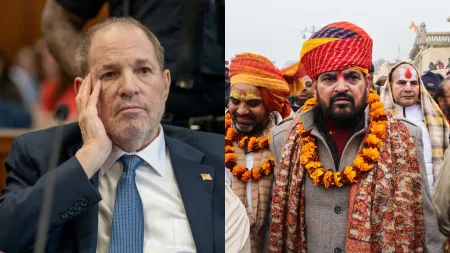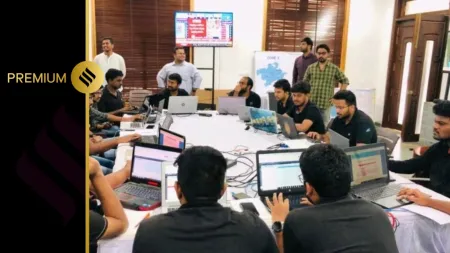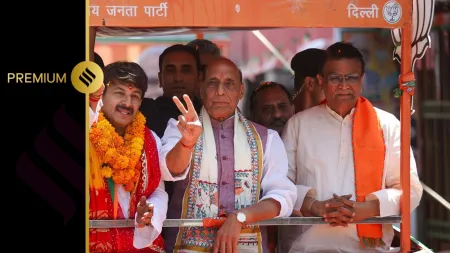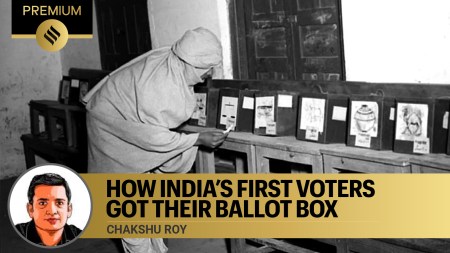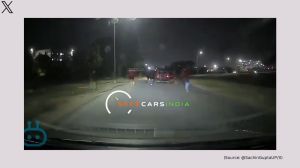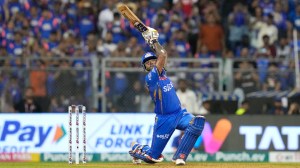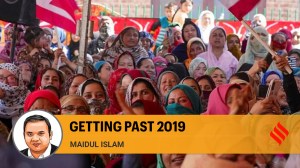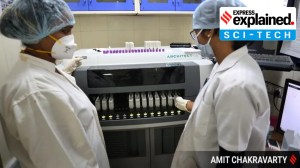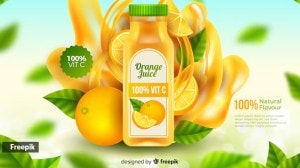- India
- International
Coronavirus scare: Supplies hit, pharma hub in Himachal faces production crisis
The price of paracetamol, an active pharmaceutical ingredient (API) used to formulate a commonly used drug of the same name, has nearly doubled since January, and is now being sold for Rs 450-500 kg, industry sources said.
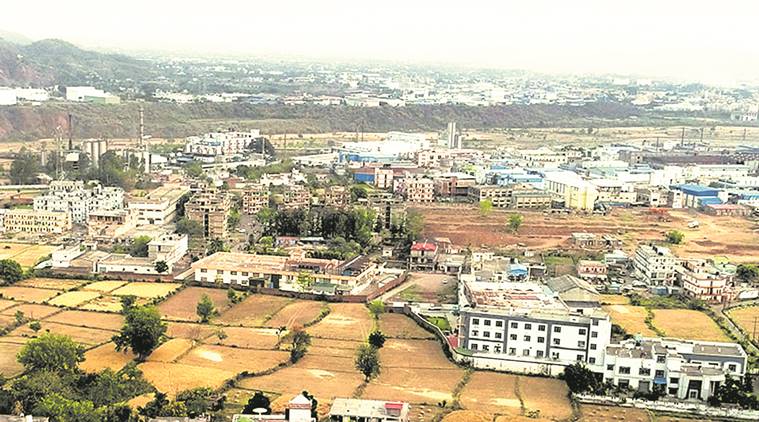 The Baddi industrial hub
The Baddi industrial hub
Pharmaceutical units in the Baddi-Barotiwala-Nalagarh industrial belt of Himachal Pradesh have warned of suspension of production, with the import of raw materials used to make drugs hit due to the coronavirus scare in China.
The price of paracetamol, an active pharmaceutical ingredient (API) used to formulate a commonly used drug of the same name, has nearly doubled since January, and is now being sold for Rs 450-500 kg, industry sources said. The cost of methylcobalamin, a form of Vitamin B12, is up Rs 1 lakh to Rs 2.5 lakh per kg, while several ingredients such as alpha-lipoic acid have gone missing.
APIs, also called bulk drugs, are key ingredients in the manufacture of medicines. Around 70-80% of APIs in India are imported. The Hubei province of China, the epicentre of the coronavirus, is the hub of its API manufacturing industry.
In 2018-19, around 67.5% of APIs and drug intermediates in India, worth around $2,400 million, were imported from China, according to statistics tabled in Parliament.
As per the Himachal Pradesh Department of Industries, the state has more than 300 drug companies, accounting for around 35% of pharmaceutial products in Asia and 60% in India, making it “the largest pharma hub of Asia”.

Madhav Chopra of Lifecare Neuro Products Ltd said the sharp increase in costs, coupled with controlled prices of finished pharmaceutical products, is rendering production financially unviable. “Even the few domestic API manufacturers are dependent on imports, mainly from China, for ingredients called intermediates. In effect, there is little self-reliance as virtually the entire raw material is directly or indirectly imported,” he said.
Explained: Some say the coronavirus risk is exaggerated, the ‘normal’ flu is just as bad. Here’s some perspective
Lifecare manufactures 100 to 150 products, including antibiotics, neuropsychiatric drugs and heart medicines.
“Some formulation units are on the verge of suspending production as the reserve stock of APIs generally does not last beyond 20-30 days. The existing stocks are not expected to last beyond April,” said Manav Grover, Managing Director of Costway Pharmaceuticals, which manufactures around 200 drugs, including painkillers, antibiotics and diabetes medications, with an annual turnover of around Rs 15 crore.
Pointing out that the price of Montelukast (a medicine for asthma) has doubled to Rs 62,000 per kg, Grover added, “The National Pharmaceutical Pricing Authority (NPPA) must step in and allow a temporary hike in prices of finished drugs.”
Attached to the Department of Pharmaceuticals in the Union Ministry of Chemicals and Fertilizers, the NPPA is an independent regulator which notifies ceiling prices of essential drugs listed under the first schedule of the Drug Price Control Orders, 2013.
Dr Rajesh Gupta, the president of the Himachal Drug Manufacturers’ Association, said they had apprised the Department of Pharmaceuticals about the shortage of essential APIs such as nimesulide and paracetamol. Noting that the annual turnover of the pharmaceutical industry in the state was Rs 25,000-30,000 crore, he said, “In 2003-04, a tax incentive package by the Centre helped establish the industry here. The package has lapsed now and the industry is in a crisis.”
Read | Screening stepped up as coronavirus reaches Delhi and Hyderabad
Chopra said that the crisis underlined the need to encourage domestic production of APIs. “Imports from China have been disrupted in the past too. The government should immediately offer long-term incentives and infrastructure facilities encouraging new API and bulk drug units. This will reduce dependence on China. Also, existing schemes such as capital subsidy and GST input credit should be disbursed swiftly to support the industry in this hour of stress.”
In 2015, declared the ‘Year of Active Pharmaceutical Ingredients’, then Union Minister of Chemicals and Fertilizers Ananth Kumar had assured the pharmaceutical industry of steps to make India self-sufficient in bulk drugs, admitting concern over dependence on imports from a single source “and the supply risks associated with such a situation”.
Consequently, a committee headed by Secretary, Department of Health Research, Dr V M Katoch recommended setting up six large API and intermediate manufacturing clusters, and urged the government to extend assistance. After that, in 2018, the Department of Pharmaceuticals constituted a task force to formulate a roadmap for the same.
However, domestic API manufacturing has not taken off and the reliance on China continues.
Himachal Pradesh currently has two API plants. An official of Baddi-based Macleods Pharmaceuticals Ltd said a major challenge in setting up new units will be meeting environmental standards.
An official said, “Three large API manufacturing clusters/mega parks are proposed across the country, to be equipped with common effluent treatment plants, testing facilities, assured power supply and multiple financial incentives.” One of the proposals is for a 54-hectare bulk drug pharma park at Kripalpur in Himachal’s BBN industrial belt.
The Himachal Drug Manufacturers’ Association’s Dr Gupta said nearly half of the around 750 formulation units in Himachal Pradesh are concentrated in the industrial belt.
The companies based in Himachal include Sun Pharma, Dr Reddy’s, Morepen, Abbott and Torrent Pharmaceuticals.
India has the second highest number of US Food and Drug Administration-approved facilities, after America, and in 2017-18, accounted for 20% of global exports in generics (US $17.27 billion).
In terms of revenue generated, Ahmedabad and Mumbai rank after Himachal Pradesh as leading pharmaceutical manufacturers in the country.
May 07: Latest News
- 01
- 02
- 03
- 04
- 05





